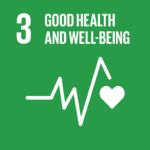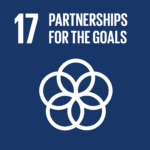The research, led by Matthew Hobbs and a multidisciplinary team of scientists from institutions across New Zealand, highlights childhood as a critical period for brain development when environmental pollutants may exert long-term effects.
CHRISTCHURCH, New Zealand — A new longitudinal study offers compelling evidence that childhood exposure to air pollution can have enduring impacts on cognitive, educational, and mental health outcomes. The study, based on data from the Christchurch Health and Development Study (CHDS), reveals that elevated air pollution exposure during early developmental years is associated with attention problems, substance abuse, conduct issues, and lower educational attainment in adolescence.
RELEVANT SUSTAINABLE GOALS



Unmasking the Silent Influencer: Pollution and the Developing Brain
The research, led by Matthew Hobbs and a multidisciplinary team of scientists from institutions across New Zealand, highlights childhood as a critical period for brain development when environmental pollutants may exert long-term effects. Using historical air quality data from 1976 to 1987, the researchers linked pollution levels with the residential addresses of 1,265 participants in the CHDS, which has tracked individuals from birth in 1977 through to adulthood.
“While the effects of air pollution on adult health are well-established, little is known about its influence during early childhood,” said Hobbs. “Our study shows clear associations that demand attention and targeted policy action.”
Researchers employed Latent Class Growth Mixture Models to classify four distinct air pollution exposure trajectories:
- Low
- Persistently high
- High prenatal and postnatal
- Elevated pre-school exposure
These patterns were then analyzed against 16 outcome variables covering mental health, educational, and cognitive development.
Striking Findings Across Multiple Outcomes
Key findings include:
- Persistently high and high prenatal/postnatal exposure trajectories were significantly associated with attentional problems.
- High prenatal/postnatal exposure correlated with an increased risk of substance abuse.
- Elevated pre-school exposure was linked to conduct disorders, lower educational performance, and substance abuse.
These associations held even after adjusting for a comprehensive range of family and sociodemographic covariates.

“Our findings underscore the urgent need for environmental health interventions that prioritize children’s well-being,” said co-author Geri McLeod. “This is especially critical for policy-making in urban centers across Southeast Asia and other developing regions with rising pollution levels.”
The implications are particularly relevant for countries experiencing rapid urbanization, where regulatory frameworks around air quality remain underdeveloped. “Early-life exposure to air pollution is a modifiable risk factor,” noted co-author Annabel Ahuriri-Driscoll. “Interventions can have ripple effects, reducing the burden of mental health disorders and improving educational outcomes.”
Southeast Asia and Asia: A Regional Lens
For much of Southeast Asia, where economic growth often outpaces environmental safeguards, this study serves as a sobering reminder. With high population density, widespread urban development, and limited public health infrastructure in many areas, the region faces compounded vulnerabilities. Countries such as Indonesia, Thailand, Vietnam, and the Philippines must navigate a delicate balance between growth and sustainability.
This research signals that air pollution is not just an environmental issue but a fundamental challenge to child health and human capital development in Asia.
The authors advocate for integrated monitoring of air quality, early intervention programs in polluted areas, and child-focused environmental health policies. They also highlight the importance of continued research and surveillance to understand evolving exposure patterns amid climate change and increasing industrialization.
“With appropriate investments in clean air initiatives and urban planning, we can alter developmental trajectories for children born today,” said Hobbs.
As governments worldwide strategize on climate and public health, studies like this provide evidence-based direction for meaningful intervention. Reducing air pollution is not merely an environmental objective—it is a child rights imperative and a cornerstone for healthier, more equitable societies.
The full study was published as part of the Christchurch Health and Development Study and involved collaboration among 11 researchers across epidemiology, public health, and environmental sciences.




